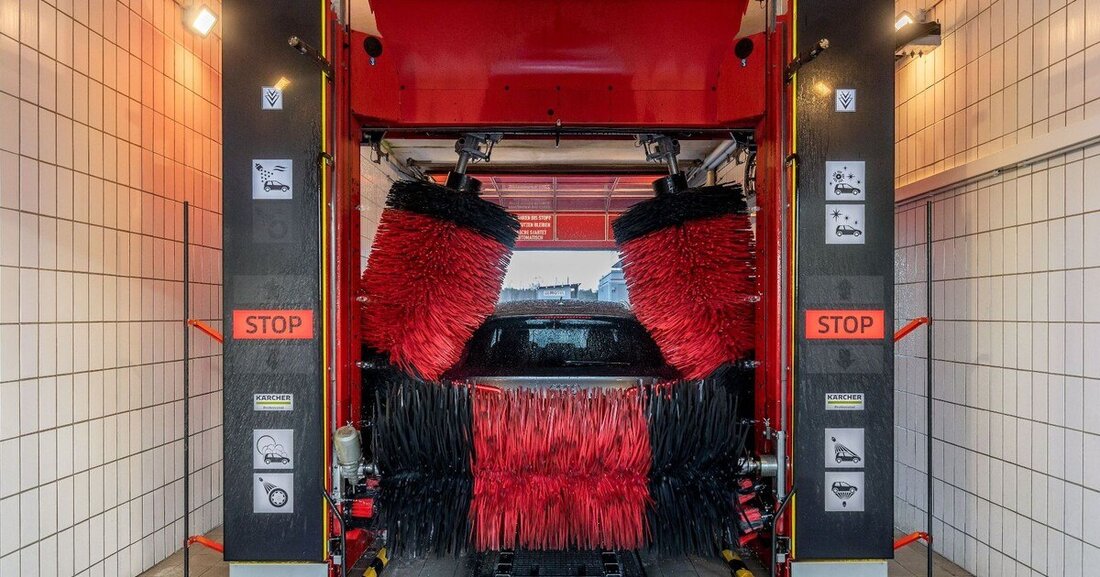Environmental protection when washing your car
With new calculations, the WKO shows that professional car washing is better for vehicles and the environment.

Environmental protection when washing your car
Bregenz could be supplied with fresh water for a year if cars were washed in sustainable car washes instead of using a garden hose. The Association of Garages, Gas Stations and Service Companies of the Austrian Chamber of Commerce recently calculated this after collecting data. The ÖAMTC motorists' club also advises that it is better to leave vehicle cleaning to an automatic car wash, as the likelihood of damage to electronics, paint and windows is significantly lower than with manual washing, and the proper function of all safety assistance equipment in the vehicle, such as the distance warning system, is guaranteed.
In many Austrian municipalities, car washing at home, on the lawn or on public roads is prohibited by wastewater associations. However, since word of this has not yet spread everywhere, around 1 million cars are privately washed once a month. As a result, over 1.8 billion liters of water seep into the ground every year - along with chemicals and pollutants. “Private car washes are not only questionable because of the environmental pollution, but also because of the high consumption of fresh water,” warns Klaus Brunnbauer, chairman of the trade association for garages, gas stations and service companies. “The water, mostly of drinking quality, that is used annually for private car washes corresponds to the annual requirements of around 9,500 average four-person households in Austria.”
The environmental regulations for commercial car washes in Austria are very high, which is why precisely dosed, environmentally friendly chemicals are used in automatic car washing. In addition, the coarse dirt is separated from the water via the sludge trap and the settling tank so that it can be vacuumed away by a professional waste disposal company. Before the wastewater is allowed into the sewer, all oil-containing substances are collected via the oil separator. These are also disposed of separately. This ensures that contaminants such as fuel, oil, fine or brake dust do not reach groundwater and drinking water. When you wash your car outdoors, these substances end up in the ground unfiltered, which is extremely problematic from an ecological point of view. In addition, more and more car washes in Austria are investing in a system through which the wastewater is additionally filtered and cleaned so that it can be reused for the next car wash. This means that up to 90 percent recycled water is used when washing cars in car washes with water recovery, depending on the washing program.
While private car washing with a garden hose uses 150 to 200 liters of fresh water, car washes with water treatment only require around 18 liters of fresh water, depending on the washing program. Conclusion: If all self-washers washed their cars in a car wash with water recycling, up to 1.58 billion liters of water could be saved annually. In terms of quantity, this means that the city of Bregenz could be supplied with fresh water for a year. "The decision to clean your car in a professional car wash is not just a question of preserving the value of the vehicle, which is supported by various washing and care programs such as underbody washing or wax sealing. It is a clear commitment to environmental protection," emphasizes Brunnbauer, and continues: "The transport sector is still one of the biggest challenges in terms of climate change. With seemingly small decisions, such as the one for a professional car wash, everyone can do their part."

 Suche
Suche
 Mein Konto
Mein Konto